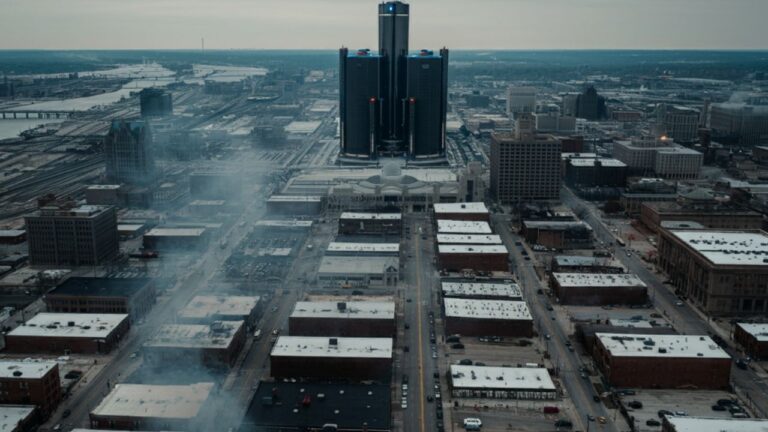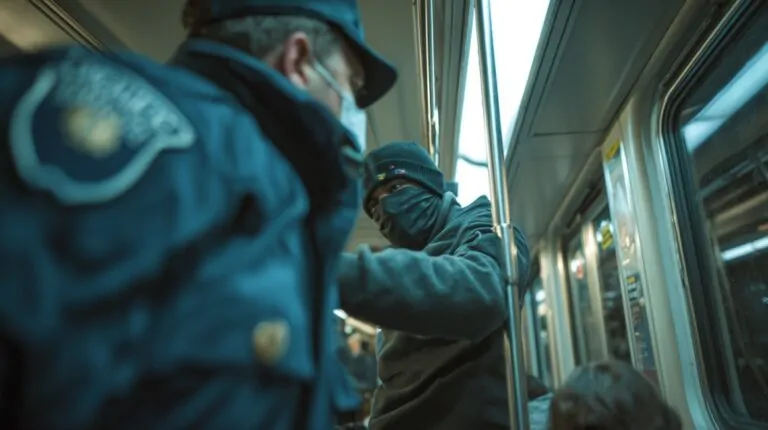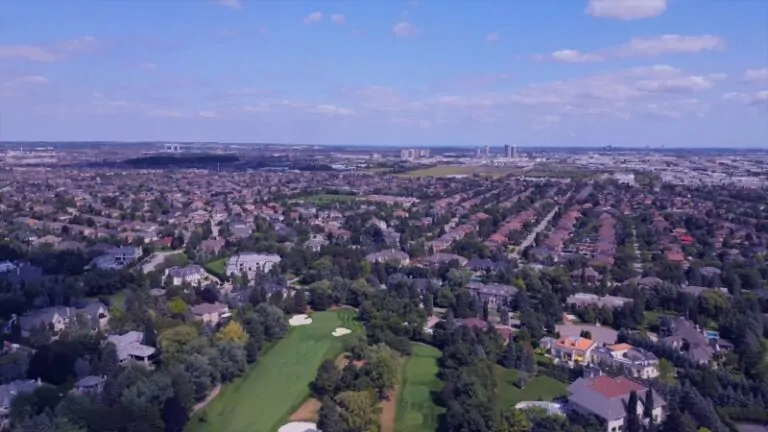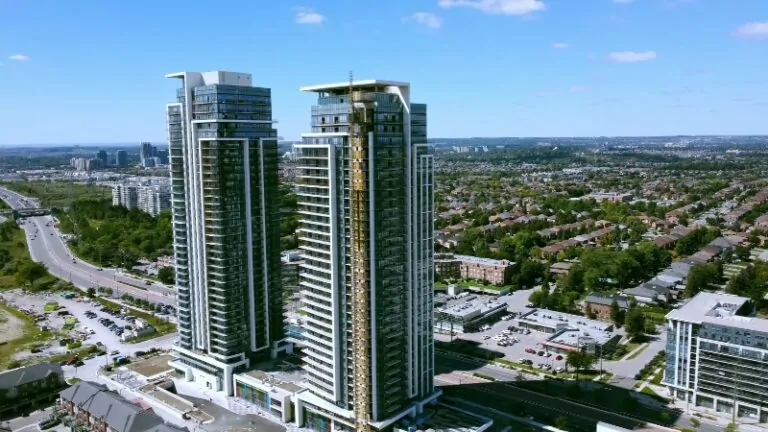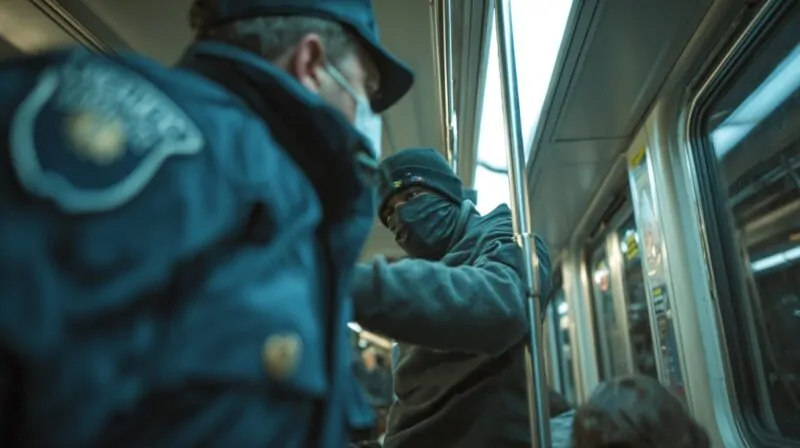Detroit’s history with crime has long been a topic of national debate. Over the years, the city has faced significant challenges with violent and property crime, earning it a reputation for high crime rates.
However, recent developments and local initiatives have sparked discussions about whether Detroit is finally turning the corner on crime or if the progress is too modest to make a lasting impact.
As of 2025, there’s an ongoing debate: Is Detroit getting safer, or are crime rates continuing to pose a serious challenge for its residents?
Let us talk about it.
Table of Contents
ToggleKey Takeaways:
- Detroit’s total crime rate in 2025: 66.09 per 1000 people.
- Detroit’s violent crime rate is 488% higher than the national average.
- Property crime remains a major issue, with 1 in 22 residents likely to become victims.
- Poverty rate: 33.8% in Detroit (higher than Michigan’s 13.4%).
- Unemployment rate: 8.8% contributes to high crime rates.
Overview of Detroit Crime Rate
In 2025, the total Detroit crime rate is at 66.09 per 1000 people, as NeighborhoodScout report states.
According to the local government, the drop is significant in a period between 2022 and 2023:
| Crime category | 2022 | 2023 | % change +/- |
|---|---|---|---|
| Homicides | 309 | 252 | -18.4% |
| Nonfatal Shootings | 955 | 804 | -15.8% |
| Carjackings | 251 | 167 | -33.5% |
The city had 252 murders in 2023, which is the lowest number since 1966, as NBCNews writes.
While the numbers indicate progress, there is still a need to analyze the underlying causes and sustainability of these trends.
Detroit has been working on a range of crime-prevention strategies, but the city’s historical struggles with poverty, gang violence, and failing infrastructure continue to influence its crime rates.
It remains to be seen if the first quarter reductions will persist throughout the year.
High-Crime Neighborhoods
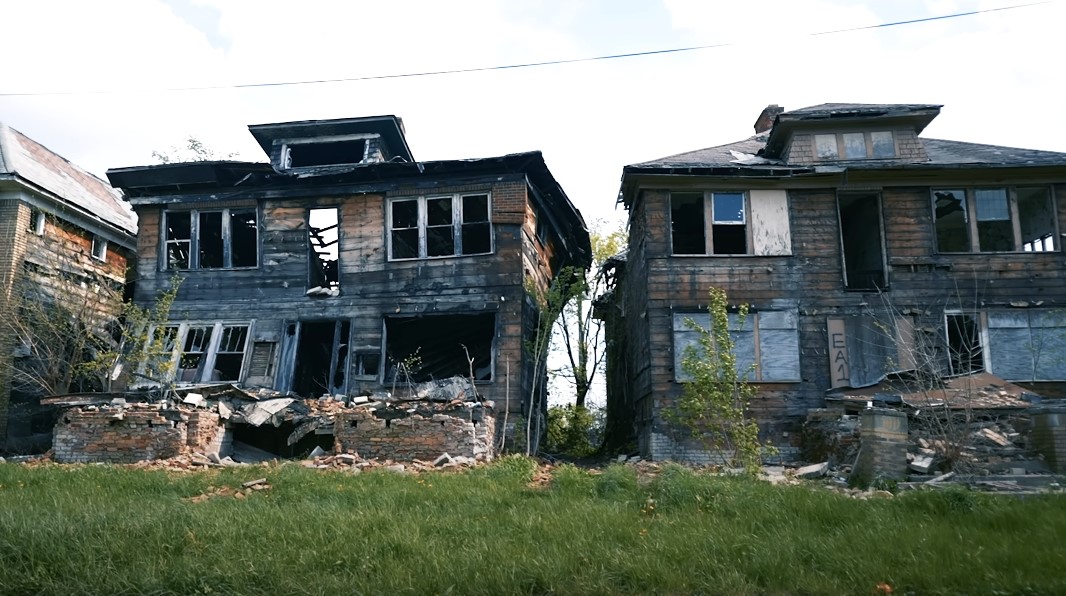
Some Detroit neighborhoods have a head-spinning crime rate, the ones with the highest rates being:
| Neighborhood | Crime Rate compared to the National level |
|---|---|
| Belmont | +664% |
| Petosky-Otsego | +626% |
| Van Steuben | +593% |
| Fishkorn | +577% |
| Warrendale | +576% |
| Greensbriar | +549% |
| Franklin Park | +543% |
| Fitzgerald | +516% |
| The Eye | +479% |
| Poletown East | +307% |
Violent Crime
The problem with violent crime in Detroit is a continuous issue that is yet to be resolved.
As the AreaVibes report shows, violent crime is 488% higher than the national average, which is horrifying.
The previously mentioned NeighborhoodScout report clearly shows that the violent crime rate is 20.59 per 1000, or 12,774 violent crimes committed.
The chance of becoming a victim of a violent crime in Detroit is 1 in 49. The current numbers of violent crimes in the city are:
| Crime category | Report Total | Rate per 1,000 |
|---|---|---|
| Murder | 252 | 0.50 |
| Rape | 719 | 1.16 |
| Robbery | 1,400 | 2.26 |
| Assault | 10,343 | 16.67 |
Even though the latest trends are encouraging, we can see that violent crime is still a big problem.
In fact, the big cities that are close to Detroit, like Boston, Buffalo, or Cleveland, do have a problem with violent crime rate, but it is not nearly as massive as in Detroit.
Property Crime

Property crime, although decreasing, continues to be a massive problem in Detroit, even bigger than violent crime. We can all agree that this is the segment that harms the city’s reputation, which will require decades to fix.
The property crime rate in Detroit is currently at 45.50, which makes it 129% higher than the national average.
The chances of becoming a victim of a property crime in Detroit is at a staggering 1 in 22, which is among the highest in the country.
Despite the recent reduction, these crimes are a considerable challenge for the community and law enforcement. The current outlook looks like this:
| Category | Report Total | Rate per 1,000 |
|---|---|---|
| Burglary | 4,829 | 7.78 |
| Theft | 13,891 | 22.39 |
| Motor Vehicle Theft | 9,507 | 15.32 |
Many property crimes are opportunistic, occurring in areas with limited surveillance or economic disadvantage, and continue to plague certain neighborhoods.
Factors Influencing Crime in Detroit
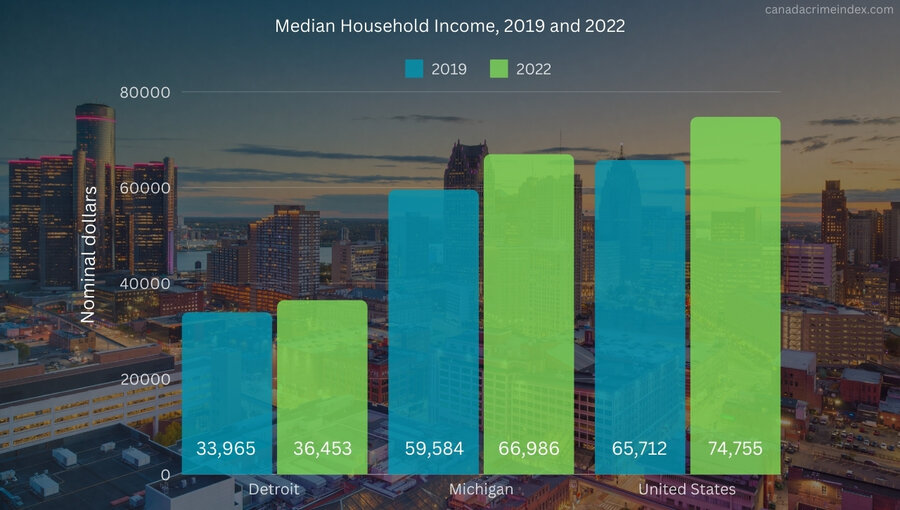
Several socioeconomic factors play a significant role in Detroit’s crime rates. Let us check them out in detail:
Poverty and Economic Hardship
Poverty remains one of the leading contributors to Detroit’s high crime rates.
As the Detroit Economic Indicators Report says, the current Detroit poverty rate is 33.8%, which is 2.5 higher than the average in Michigan, which is at 13.4%
Many residents face significant economic challenges, which create an environment conducive to criminal activity.
The lack of financial stability often drives individuals to resort to illegal means for survival.
These negative effects are a direct consequence of a bankruptcy that occurred back in 2013.
Limited access to well-paying jobs and financial resources exacerbates these issues, leading to cycles of poverty that are difficult to break.
In high-crime areas, economic despair is deeply intertwined with the prevalence of criminal behavior, from petty theft to more violent offenses.
Unemployment

In addition to poverty, high unemployment rates in Detroit significantly influence crime rates. The unemployment rate in Detroit is 8.80% according to YCharts.
Unemployment is rampant in many of the city’s economically distressed neighborhoods, leaving residents with few options for legitimate income.
As job opportunities dry up, desperation increases, pushing some individuals toward illegal activities, including theft, robbery, and drug-related crimes.
The correlation between unemployment and crime is well-documented in the city, and efforts to provide job training and employment opportunities are key to reducing crime over the long term.
Fortunately, we can see that there is some positive news regarding new job opportunities. JPMorgan announced that the company intends to create 72,000 new workplaces in Detroit.
Struggling Infrastructure and Access to Services
Detroit’s struggling infrastructure also plays a significant role in shaping its crime rates.
Many neighborhoods are characterized by inadequate housing, crumbling buildings, and lack of access to essential services.
Schools in these areas often lack resources, which hampers educational achievement and limits future employment prospects for residents. The problem with public schools is a long-lasting one, lasting for more than a decade.
Limited access to social services such as healthcare, mental health support, and rehabilitation services further compounds the problem, leaving individuals without the help they need to escape poverty and crime.
Gang Violence
#FBIDetroit‘s Violent Gang Task Force works hard to combat gang violence in Metro Detroit and throughout Michigan. Read more about the Task Force’s successful cases (and more) at https://t.co/ivfYgAgqbU. pic.twitter.com/0uiR78NDCE
— FBI Detroit (@FBIDetroit) February 9, 2019
Gang violence remains a significant factor contributing to the overall crime rates in Detroit. Particularly in 2017, the city experienced a surge in gang-related homicides, which drove up the violent crime rate.
Gangs in Detroit, often operating in economically depressed neighborhoods, engage in illegal activities like drug trafficking and weapons smuggling to sustain their operations.
These activities not only lead to violent confrontations between rival gangs but also create a sense of fear and instability within the community.
While Detroit has made strides in combating gang violence, it continues to be a major concern. A recent incident that sparked between two parties in June confirms that gang violence is still a big problem.
Drug Trafficking and Criminal Networks
Drug trafficking is a major issue that fuels crime in Detroit.
Many gangs rely on the sale and distribution of drugs as their primary source of income.
This illegal trade not only leads to violent turf wars but also increases addiction and related crimes such as theft and robbery.
Drug-related violence is a significant contributor to Detroit’s overall crime statistics, especially in neighborhoods where law enforcement struggles to gain control.
Efforts to reduce the drug trade have been critical in the city’s attempts to reduce overall crime rates, but the persistence of criminal networks makes it a challenging battle.
Community Efforts and Law Enforcement Initiatives

To address crime in Detroit, several community-based initiatives and law enforcement programs have been implemented.
The Detroit Police Department has adopted community policing strategies, working closely with neighborhood groups to prevent crime.
Programs like FORCE Detroit and Shot Stoppers focus on proactive crime prevention by encouraging residents to report suspicious activity and providing resources to high-crime areas.
On a governmental level, reforms such as the introduction of a gun violence court and changes to the bail system have aimed at reducing violent crimes.
These efforts have been part of a broader push to engage the community in creating safer environments. Recent measures proved themselves to be quite effective, which led to a decrease in gun crime in the city.
Methodology
The methodology used for compiling this report involved several key steps aimed at providing an accurate and comprehensive overview of Detroit’s crime statistics for 2025.
To begin, various authoritative sources of crime data were consulted, including reports from the Detroit Police Department, NeighborhoodScout, AreaVibes, and governmental publications. These sources offered detailed figures on both violent and property crimes within the city.
Crime statistics were analyzed across different categories, such as homicides, shootings, and property crimes, to highlight changes over time. A comparative analysis was also conducted to examine the percentage change in crime rates between 2022 and 2023.
The analysis allowed for the identification of significant trends and fluctuations, such as the notable drop in homicides and carjackings, which were emphasized to underline the progress Detroit has made.
Neighborhood-specific crime data was collected to offer insights into the areas with the highest crime rates, providing a localized perspective on the broader citywide statistics. The methodology also included an examination of socioeconomic factors, such as poverty and unemployment, to contextualize the crime data.
Sources like the Detroit Economic Indicators Report and YCharts were utilized to explore these factors, which are crucial for understanding the root causes of crime in Detroit.
The Bottom Line
Detroit’s crime rate in 2025 shows signs of improvement, with significant drops in violent and property crimes during the first quarter of the year.
However, challenges remain, particularly in high-crime neighborhoods.
While some areas of the city enjoy lower crime rates, socioeconomic issues and gang activity continue to fuel criminal behavior in other parts of Detroit.
The outlook for the rest of 2025 is cautiously optimistic, as community efforts and law enforcement initiatives aim to build on the progress seen so far.
Sources
- NeighborhoodScout – Detroit, MI Crime Rates
- DetroitMI – Detroit ends 2023 with fewest homicides in 57 years
- NBCNews – Trump says crime is out of control. The numbers tell a different story
- PropertyClub – Most Dangerous Neighborhoods in Detroit
- AreaVibes – Detroit, MI Crime Rates
- CrainsDetroit – As Detroit makes progress against crime, reputation still lags
- DetroitNews – Detroit ranks as 2nd most violent big city
- APNews – 10 years since bankruptcy, Detroit’s finances are better but city workers and retirees feel burned
- pmc.ncbi.nlm.nih – Desperation and inequality increase stealing: evidence from experimental microsocieties
- YCharts – Detroit, MI Unemployment Rate (I:DMIUR)
- JPMorganChase – Creating Job Opportunities for Over 72,000 Detroiters
- CERP – Wasted urban infrastructure: The city of Detroit
- WashingtonPost – A Sea of Charter Schools in Detroit Leaves Students Adrift
- DetroitMI – 2019 Part 1 Crimes
- Fox2Detroit – Suspect in custody, rival gang violence behind Detroit block party mass shooting, police confirm
- Justice.gov – Michigan High Intensity Drug Trafficking Area Drug Market Analysis
- DetroitMI – Police Department
- ForceDetroit
- MichiganPublic – Detroit officials say ShotStoppers shows big violent crime reductions in 4 of 6 neighborhoods
- Vox – Want to know how to reduce gun crime? Look at Detroit.


